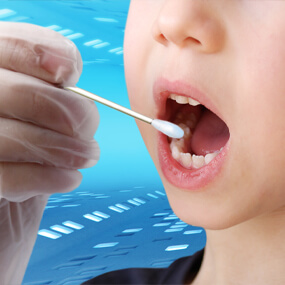Tooth Erosion: The Foods and Beverages That Cause It

Sugar is bad for your teeth. Everyone knows it and is warned of it at a young age, but sugar may be overemphasized. It is that emphasis that leads many people to believe that diet sodas are a safe choice for your teeth. They are not! Diet sodas often have higher acid levels than regular soda.
Acids are bad for your teeth because they break down your tooth enamel—the protective layer. This is a process known as tooth erosion. Erosion not only discolors your teeth but makes you susceptible to cavities and infections. Enamel can be repaired, but once it has eroded, that erosion is irreversible!
As your enamel wears, you may experience:
- Sensitivity to hot, cold, and sugary food and drinks
- Yellowing or other discoloration of the teeth
- Changes to your fillings
- Greater susceptibility to cavities
- Abscesses in extreme cases
- Tooth loss in extreme cases
If you have tooth erosion, you may need a filling, root canal therapy, or to have the tooth or teeth removed. Once treated, you may need a crown to protect the tooth, and crowns and veneers are available as cosmetic options in order to perfect your smile.
Problem Foods and Beverages
You want to limit your consumption of foods and beverages that contain high levels of acid. If a food or drink is carbonated, sour, or citrus-flavored, there is a good chance it is loaded with acids.
Many acidic foods—such as tomatoes and oranges—are quite nutritious. Feel free to eat them as ingredients in meals, but limit your consumption of them as snacks. Dried fruits can be particularly troublesome because they stick to your teeth and continue releasing acids over time.
The main culprits when it comes to tooth erosion are soft drinks, including soda and sports drinks. Sugar-free may be better in terms of less empty calories consumed, but the acids are just as bad and often present in much higher quantities to compensate for the lack of sugar. Your best bet is to eliminate these from your diet altogether, and if you do drink them, do so only as an occasional treat.
Oranges have already had a mention. Other culprits include lemons and limes, which many people use to flavor their water and inadvertently damage their teeth. Fresh-squeezed lemonade and orange juice may seem like an all-natural beverage option, but they can really do a number on your teeth.
We all deserve a treat from time to time, but be selective. Sour candies are a big no-no. Candymakers load their products with citric acids to achieve that sour effect, and often, the candies are nearly as acidic as battery acid as a result. If you do treat yourself with sour candies, then as soon as you are finished, rinse with water and ensure that all food particles are dislodged from your teeth and gums.
Protecting Your Teeth
The American Dental Association recommends that you brush twice a day: once after breakfast and again before going to bed. Rinsing vigorously with water is a good option after other meals and snacks.
Cheese, as well as milk, is a good choice after acidic meals since they neutralize acids.
Saliva production is a defense system. It washes away acids and regenerates healthy tooth enamel, and you can encourage saliva production by chewing a piece of sugar-free gum.
To ensure healthy saliva production, drink water throughout the day. It should be your main liquid, and a reverse osmosis system can remove nearly all of the impurities that may affect your teeth.
When you do enjoy acidic beverages, use a straw, which will limit contact with your teeth. Do not swish these beverages or hold them in your mouth longer than necessary. Just sip and swallow.
Discuss your diet with your dentist. Your dentist can provide personalized advice based on the current condition of your teeth. Adjusting your diet based on those recommendations can make your mouth feel better and be easier and more cost-effective to care for over the long-term.
Stave Off Tooth Erosion
Ensuring the health of your tooth enamel is among the chief reasons to see your dentist twice a year. Your dentist can clean your teeth, examine them and advise at-home care and in-office treatments to avoid tooth erosion. If it is time for your next checkup, schedule a visit with Dr. Jeff at Scottsdale Cosmetic Dentistry Excellence. Jeffrey D. Clark, DDS, is among the leading dentists in the Scottsdale area and looks forward to helping you enjoy a perfect smile. Call us today at 480 585 1853.




